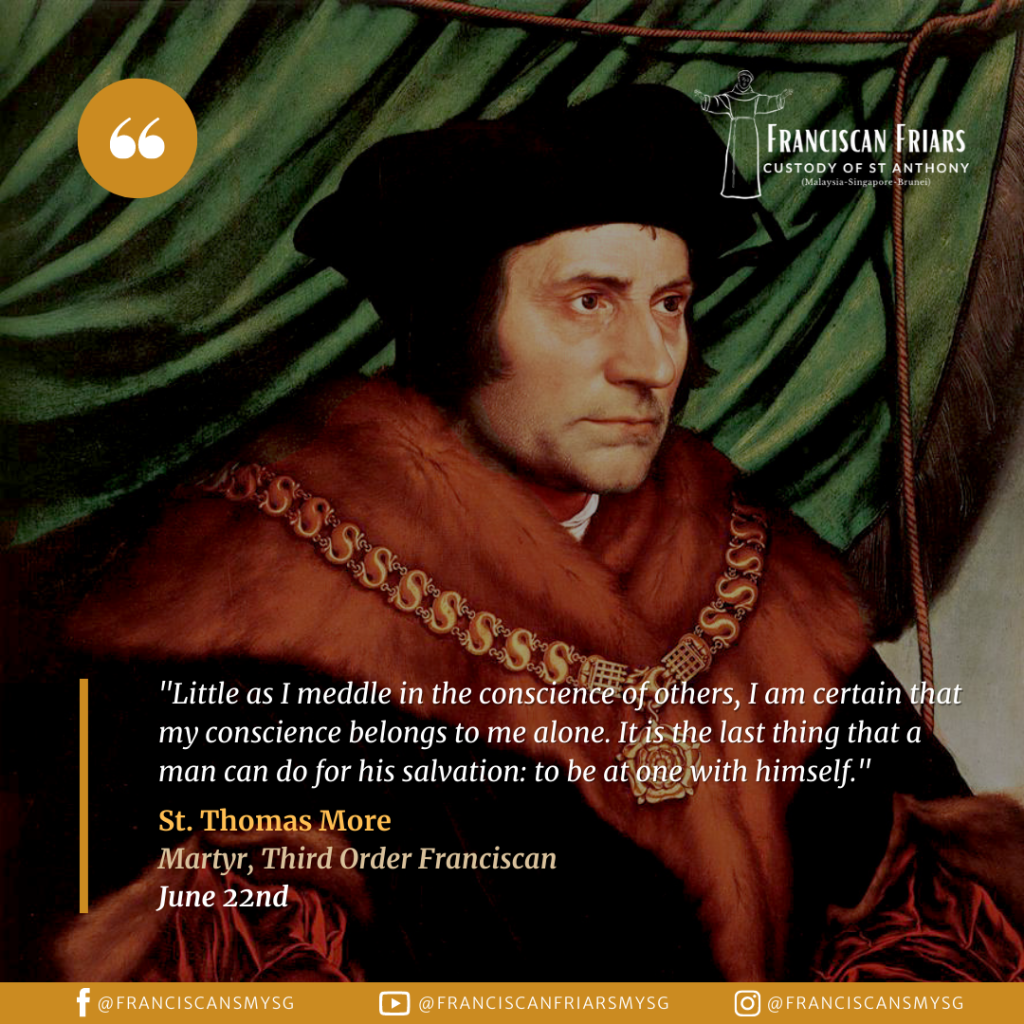
Thomas More was one of the most highly respected men of his time. A successful barrister, an honest judge, a famous scholar, he rose to the highest status of any commoner in England, appointed by Henry VIII to the office of lord chancellor.
More had little ambition for worldly success. As he later wrote, “Reputation, honor, fame, what is all that but a breath of air from another person’s mouth no sooner spoken but gone? Thus whoever finds his delight in them is feeding on wind.” More was a man of deep and demanding faith. In his youth he had considered a monastic vocation before discerning instead that he was called to serve God in the world. While outwardly he enjoyed a life of comfort, in the privacy of his spiritual life he wore a hair shirt, attended daily Mass, and practiced a strict discipline of prayer. He is believed to have become a Third Order Franciscan (and indeed his name is listed in the calendar of Franciscan saints).
More considered himself a loyal friend and servant of the king. But circumstances were to evolve to the point that Henry required a more absolute loyalty than More could offer. For some years Henry had been moving toward a fateful collision with the authority of the Catholic Church. The issue was his desire to annul his marriage to Catherine of Aragon to marry Anne Boleyn. When the pope blocked his way, Henry divorced Catherine, married Anne, and required that all subjects repudiate “any foreign authority, prince or potentate.” Rather than oppose the king, More resigned his position, but when he refused to take an oath he was arrested and imprisoned in the Tower of London. The miseries of prison life, including cold, hunger and vermin were compounded by pressure from his family. When his wife tried to coax him to alter his course, he responded, “My good woman, you are no good at doing business. Do you really want me to exchange eternity for twenty years?”
After fifteen months, More was put on trial and convicted on the basis of perjured testimony. Now, with his fate settled, he at last broke his silence. He denied that Parliament had the authority to set up a temporal lord as head of the Church. He prayed, “that though your lordships have now here on earth been judges of my condemnation, we may yet hereafter in heaven merrily all meet together to everlasting salvation.”
On the day of his execution on July 6, 1535, he displayed his characteristic wit, asking for the executioner’s help in ascending the scaffold: “As for my coming down, let me shift for myself.” Addressing the gathered crowd, he spoke: “I die in and for the faith of the holy Catholic Church. Pray for me in this world, and I shall pray for you in that world. Pray for the king that it please God to send him good counselors. I die as the king’s true servant, but God’s first.”
Thomas More was canonized in 1935. In 2000, he was declared “the heavenly patron of statemen and politicians.”
Source : The Franciscan Saints (Franciscan Media)
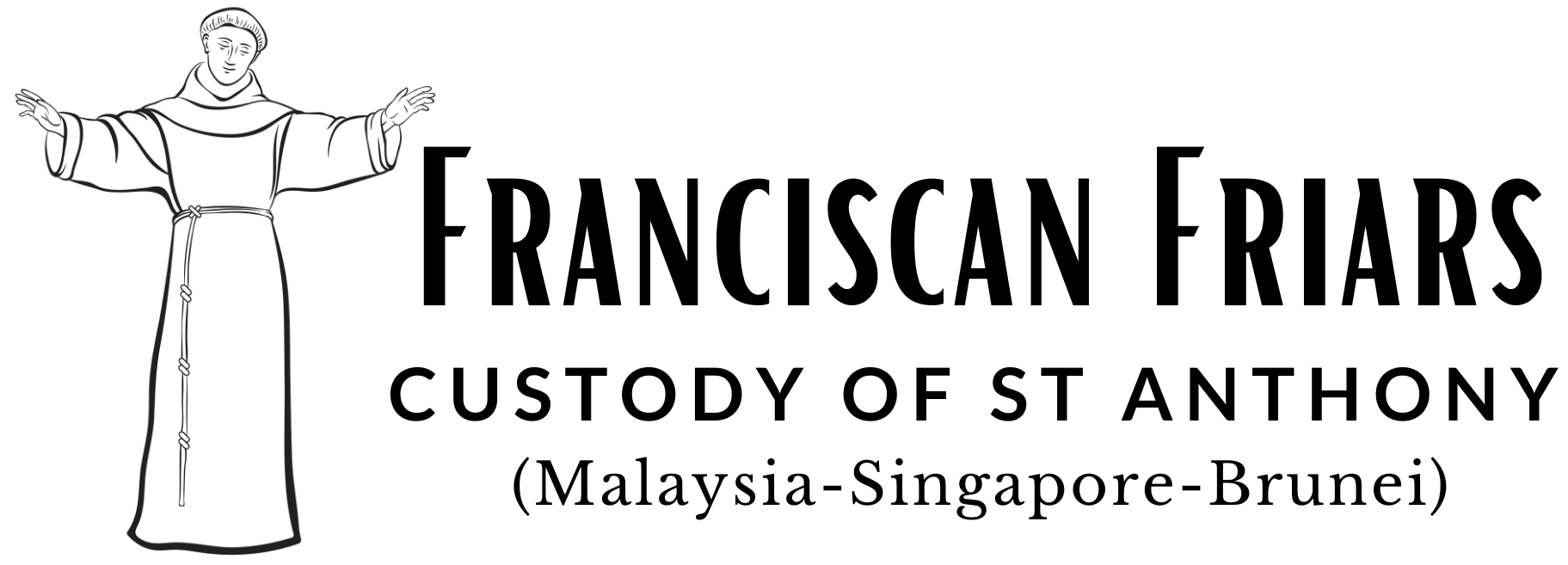
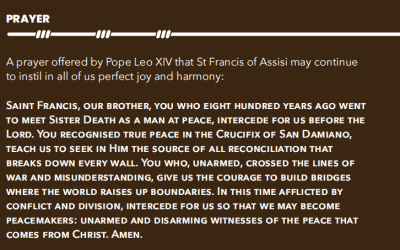
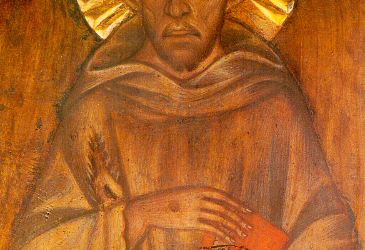

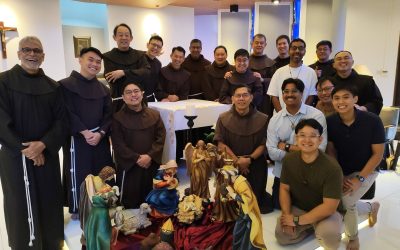
0 Comments